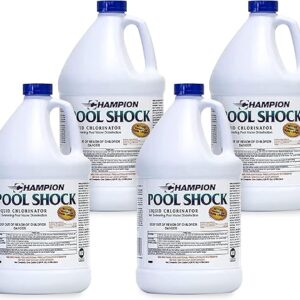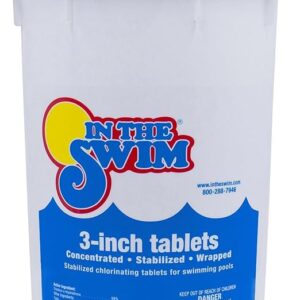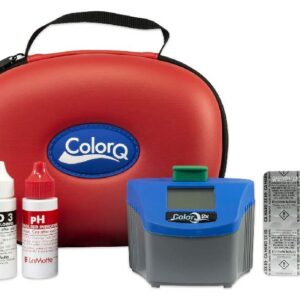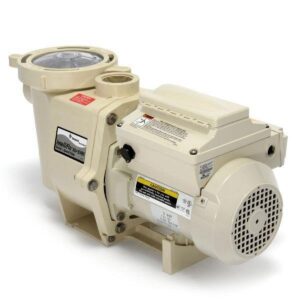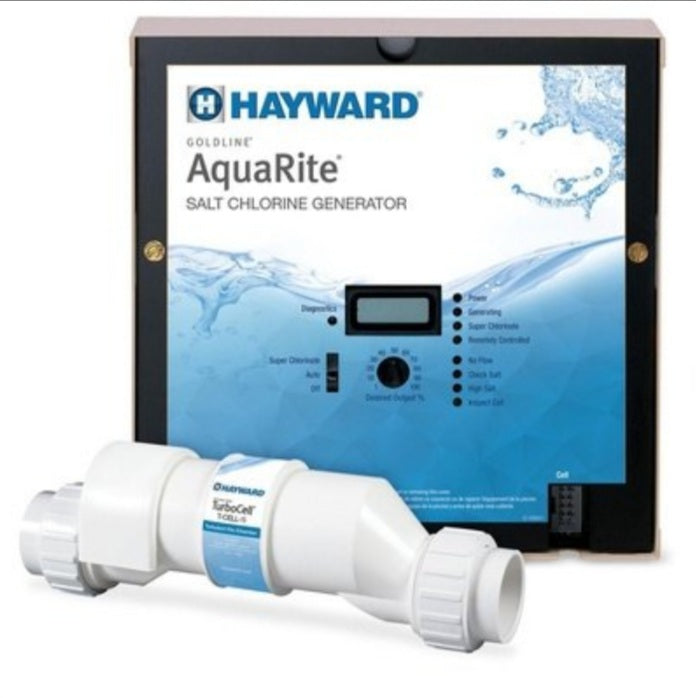High pH in Saltwater Swimming Pools: Causes and Solutions
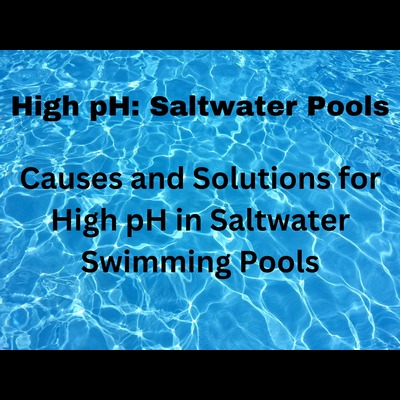
Are you wondering why the pH keeps rising in your saltwater pool? Saltwater swimming pools use chlorine generators to produce chlorine, which is released automatically into the pool to maintain the recommended (free chlorine) FC levels.
A chlorine generator uses salt (Sodium Chloride) and water during electrolysis, which produces chlorine and sodium hydroxide as the two main byproducts.
The byproduct Sodium Hydroxide has a very high pH level and will increase the pH level in your water.
Related Product: CHLORWORKS Salt Cell for Pool – Model CWPC, Compatible with Pentair IntelliChlor IC20, Supports Pools up to 20,000 Gallons
It becomes much worse when your free chlorine production level is too high. For every chlorine produced, there is an equal measure of Sodium Hydroxide.
As such, the first sign that you have more sodium hydroxide (pH increaser) is when the free chlorine level (FCL) in your pool water is too high.
Another indicator that your pool is full of sodium hydroxide might be a high level of Cyanuric acid (Cya) or chlorine stabilizer, which in turn will make your chlorine generator produce more chlorine to match the strength of the stabilizer.
Another common reason your pH level will rise unusually quickly is when the total alkalinity (TA) level is too high in your pool water, whether saltwater or non-saltwater. As such, always ensure your TA level is between 80-120ppm for a saltwater pool.
Rlated Product: CHLORWORKS Saltwater Pool System Chlorine Generator – Powerful Chlorination for Pools up to 40,000 Gallons
In short, we have learned that pH rises in saltwater pools due to:-
1) Rise in TA
2) A high chlorine production level, which produces a pH-concentrated sodium hydroxide solution.
The only two ways to control the pH level in a saltwater pool are to control the chlorine production level and to lower the TA level.
Before you start working on fixing your pool’s pH, you must know what is causing the unusual rise in the pH.
Note that you can use a strong acid like muriatic acid to lower the pH level in your water.
However, if high chlorine production is the cause, pH will reduce for a short while when the acid is added. But will shoot back up as more sodium hydroxide will be produced during chlorine production.
Most Loved Cordless Pool Cleaner: Aiper Scuba S1 Cordless Robotic Pool Vacuum Cleaner: Cleaning Schedule, Smart Navigation, Wall, Floor, & Waterline Cleaning, Suitable for all Pools Up to 1,600 sq.ft
How To Control the Chlorine Production Level in Saltwater Pools
Chlorine production levels in saltwater pools can be controlled in the chlorine generator settings.
Turn down the percentage settings in your saltwater chlorine generator to the lower settings to slow chlorine production.
If the FCL is too high, reduce your pump’s run time too to lower it faster.
Also, ensure that your Cya levels are within the recommended range of 70 ppm to 80 ppm for a saltwater pool.
The most recommended way to lower your stabilizer level is by draining and refilling some pool water with a fresh one, then balancing all pool chemicals, starting with the pH and Chlorine in that order.
Once you keep the chlorine production level under control, trust me, your pH level will also be under control. For more, visit how to fix free chlorine problems in a saltwater pool.
Related Products: 16000 BTU Heat Pump for Upto 5000 Gallons Above-ground Pools & Spas, Heater and Cooler with WiFi Timer, 120V
Raypak 399,000 BTU Natural Gas Pool Heater – Electric Ignition
How To Control the Rising pH Caused by High TA Level
When the pH rise is not caused by a high chlorine production level or a high stabilizer level in your water, then your TA is the cause.
We recommend lowering your TA level to 80ppm or 70ppm using muriatic acid. Since the pH will also reduce when muriatic acid is added, be careful not to lower your pH below 7.2. Add borate (20 Mule Team Borax) in the pool to raise the pH between 7.2 and 7.4 if it goes below 7.2. You might have to repeat the process of adding Muriatic acid and borate until the TA and pH are balanced.
Borate is a more stable pH increaser and will not increase your TA level like most pH increasers in the market out there. Using a borate ensures the pH level will be stable for a long while:) For more, visit the page on how to balance pH and TA in a swimming pool.
Related Product: Beatbot AquaSense Cordless Robotic Pool Vacuum Cleaner for above-ground and inground pools up to 2,260 sq. ft.



